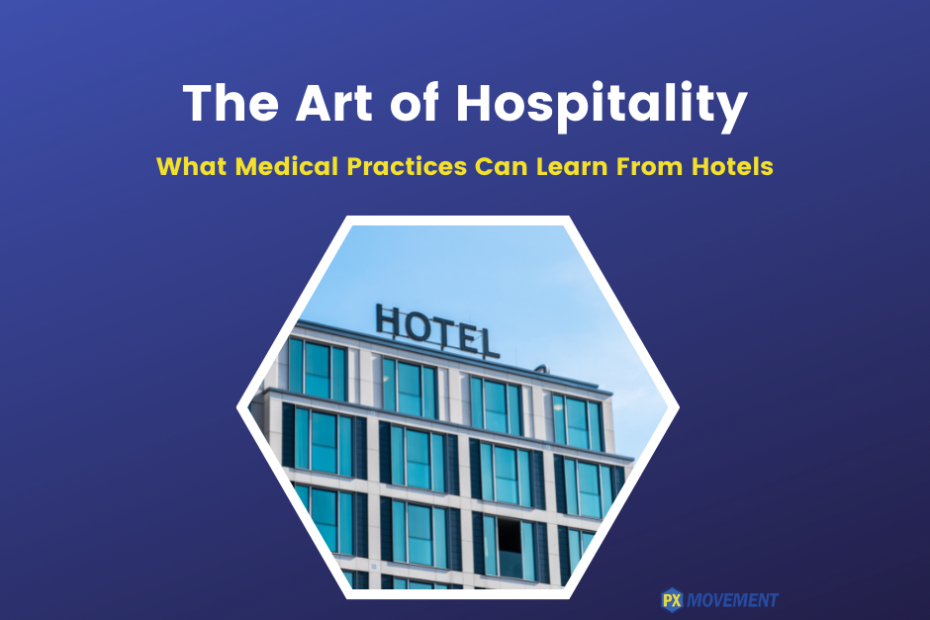3 Lessons Medical Practices Can Learn From Hotels
The concept of hospitality dates back to ancient Greece, bringing together hosts and guests in a mutually respectful and beneficial relationship. Today, hospitality is a broad industry category that covers dining, lodging, tourism, and recreation.
What strikes me about healthcare is how much can be learned and applied from the world of hospitality. Most of hospitality has figured out how to treat customers well and encourage loyalty and repeat business. And yet, for the most part, healthcare has been stuck in terms of making meaningful improvements in the patient experience. It often feels like medical encounters are a decade behind what we’ve come to expect in our daily routine of interacting with people when shopping, dining, and engaging in most customer-driven activities.
While hospitals and health systems may want to change in this regard, the prospects for making meaningful improvements are better in the medical practice. Change is hard enough; large organizations are often too bureaucratic or political to plan and implement initiatives that are felt by patients. Medical practices, being smaller in almost every way, are much easier environments in which to make change happen. But where do you start?
Here are 3 ideas from Beyond Bedside Manner that are good places to start in terms of patient experience.
1. Recruit From Hospitality
Restaurant and hotel employees already have training and exposure to customer service. They can help improve the HQ (hospitality quotient) in a medical practice.
2. Focus On the Arrival
Hospitality venues know how to greet people when they first arrive. Think about how you can re-design your check-in process to be more hospitable in the eyes of your patients. Done well, this can set the tone for a great overall experience.
3. Hire a Concierge for a Day
Find a concierge from a local hotel that would be willing to come to spend a day with the team at your practice. Have them do formal training on how to help your team develop a “how can I help solve your problem?” mentality.
In short, don’t allow the past failings of healthcare to get in the way of your resolve to create a better experience for your patients. They deserve it. And like in ancient Greece, that will in turn lead to reciprocity and respect from patients that will take your practice to a new level!

